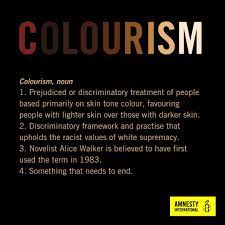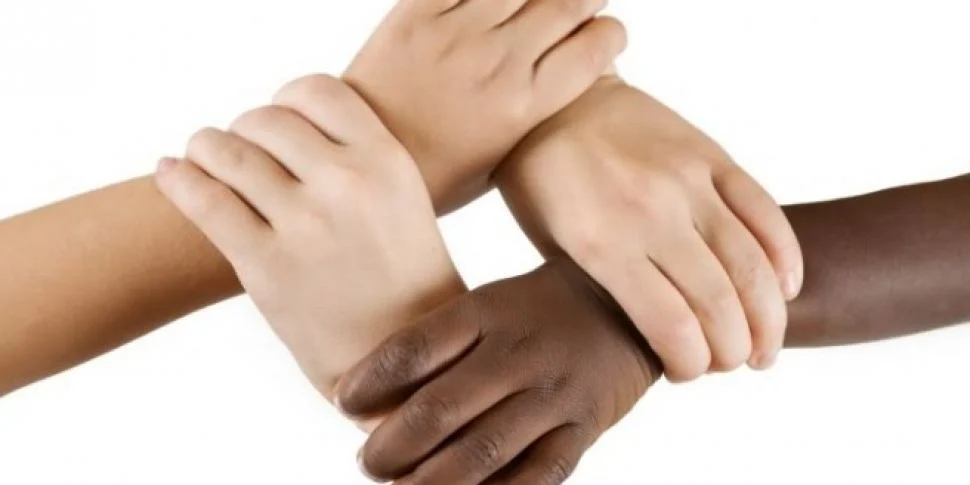When You’re Gay and Muslim – Finding Allah’s Meaning in All of It
Waheed Jensen is a Muslim male in his mid 20’s, struggling in this world with being young, open-minded and gay, trapped in a global community of Muslims who claim to follow Islam but lack the application of its most basic tenets. Working to make the world a better place for Muslims and non-Muslims alike. A version of this article appeared on Altmuslimah and VirtualMosque.com.

Ever since I began trying to understand life, one of the crippling realizations about the Muslim communities I reached was this: We tend to bury our problems in a dark hole, dismiss them and hope they will never come back to haunt us. But they often do. We overlook many of our familial, social and cultural issues until they multiply and are about to explode in our faces; at that point, we are notorious for pointing fingers and crying over spilt milk.
Our room is filled with elephants that we barely have an inch to stand, yet we remain oblivious and hope things will get better.
Allow me today to describe one of those elephants. A strange elephant. Allow me to dissect it and hand it over to you, that you may ponder and hopefully open your heart and mind.
Let me start off by saying these three words: I am gay.
Even though you do not know who I am, and maybe the mere fact that I just came out to you right this instant may offend you, confuse you or drive you away from reading the remainder of this article. Let me assure you, this is not one of those articles that tries to promote homosexuality or deliver an airbrushed and Islam-oriented version of all those pro-homosexuality arguments.
Yes, I am gay and I am Muslim, and I am here to offer you a small glimpse into a journey of struggles, passions and hopes. I do not intend to delve into the story of Prophet Lut and his people, talk about the evolution and progression of the LGBT community during the past century, present arguments for or against same-sex relations, or even try to prove my own opinion. I really hope you can read and reflect, and I pray that this small effort of bringing the picture a little closer to you might make the slightest bit of difference in raising awareness, and hopefully open healthy discussions on the topic.
I wholeheartedly believe, in concordance with Islam and its teachings, that sodomy is a major sin. I am against same-sex marriage and intercourse, and I am not in favour of any progressive movements that attempt to explain Quranic verses about People of Lut or sodomy from a modernist or post-modernist approach – in other words, arguments that try to find a leeway and claim that that is a legitimate Islamic perspective.
I hope that this will not drive away readers who are excited about the topic but may be uncomfortable with my statements. I have adopted this position after years of introspection, research, counselling and personal prayer, and I am coming forth today to share with you some of those experiences.
Why Am I Different?
Homosexuality has been present in humanity for centuries, and for as long as it has been there, homosexuals have been struggling with themselves, their families and society at large. To me personally, there was always something different. I could feel it in me from a very young age. Something that I could not explain to others because I thought they would not understand, let alone accept, or maybe because I was too young and immature at the time that I was not entirely sure what ‘it’ was.
It crystallized around puberty; when all the raging hormones started kicking in, those tendencies became obvious. And then the real struggle began.
The struggle led to an explosion of questions. “Why am I different? Why am I not like the rest of my friends or family members? Is this even normal? Am I sick?” Not finding the proper answers, I kept on putting these questions aside. “Maybe it’ll go away. Maybe it’s just a phase.” In my case, it never went away and it was not a phase.
With time I learned that this is something abhorred religiously, culturally and socially. So I tried to adapt. “How do I balance between the feelings and tendencies I have with what my religion, culture and social norms dictate?” So I began a journey of self-exploration and interacting with others, learning from religion, media as well as prominent persons, like religious scholars and major social figures. My schemas kept changing, and I kept on adapting.
Many of us may be brave enough to rebel against what others seem to ‘dictate’ on us, while others suppress their urges, often hiding their identities from those closest to them, generally out of fear, or maybe because they are not just ready to come out yet. I belong to the latter group.
To this date, I have never had the courage to tell my parents or close family members, but I have come out to a close friend of mine a few months ago, and he was extremely supportive Alhamdulillah (all praises to Allah).
One of the most dangerous pitfalls I have personally experienced was thinking that God hated me. He was mad at me. “I must have done something wrong in my life to deserve this ‘punishment’… If God does not accept homosexuality, then why am I a homosexual?” Whether Muslim or not, people struggling in silence can be more prone to deviating to dangerous paths.
So, you find many struggling homosexuals also dealing with bullying, drinking problems, substance abuse, domestic violence, poor academic performance, career problems, pornography or sex addictions, sexually-transmitted diseases, mood disorders like depression and anxiety, and many other issues. (1) I had my own share of bullying, academic problems and mood disorders. Our struggles multiply with time, and many even contemplate suicide.
This is especially true in cases where the individual tries to discuss the issue – often it is just those desires or thoughts that are tackled, not the actual act – with his/her parents or family members who are not receptive to those ideas. If not shown sympathy, care and love, he/she is often shunned, harassed, scorned and sometimes even tortured.
A lot of gay men and women are forced into arranged marriages, taken to local Imams to ‘heal them from their calamity and wrath of God’, or even killed. (2) Some of them take their own lives by themselves. Others live in constant torment while some flee their homes and families in search for a more welcoming environment. That and many have not even yet engaged in any sexual acts whatsoever.
Why We Have Difficulty with Other Muslims
This is why I, along with many fellow homosexual Muslims, find the Western alternative very striking: It offers acceptance and understanding. Things that we dearly miss in our communities, even though we may realize deep down that there is something terribly wrong, the fact that there is someone who accepts us and fights for us and not against us is incredibly more appealing. When we try to talk to other Muslim seemingly-pious and God-conscious brothers and sisters about our sexuality and are shunned by their lack of empathy, respect and understanding, would you find it surprising that we take comfort in talking to non-religious people about our struggles in hopes to find an open mind and a loving heart?
Ironically, the spirit of Islam is all about empathy, tolerance and understanding, yet the practice of Islam carried out by many Muslims shows the opposite.
Trust me, I understand that it is a difficult topic to open up with others, especially people coming from conservative backgrounds. It is difficult news for you to receive, just as it is difficult for me to handle, let alone share with others. However, the fact that I choose to come out to specific people means that those people are exceptionally special to me. To us.
It takes a lot of courage, incredible determination and a full dose of anxiety and fear to even think about coming out to someone, that you can imagine the damage we have to endure when the other person dismisses us or shows no empathy or mercy. It seems like a lot to handle if you ask me.
I remember the first time I decided to come out to someone, I was going through an overwhelming period in my life, yet Alhamdulillah I had some seeds of piety and religiosity inside me. I was around 18, and he was a non-religious psychologist and counsellor. I went to an appointment with him, tried to beat around the bush but ultimately came out to him. And, he was accepting. Later on, I found out that many struggling homosexuals came to him for advice and counselling.
I was hoping that, with the aid of therapy, my orientation would change – this is scientifically known as reparative or conversion therapy; while many studies have been conducted on it and some patients have reported success, a great number of psychiatrists and counsellors have reported failure and more harm done to the patients than good. The progress of my visits culminated in him putting forward the idea of accepting who I am and going all the way with it – in other words, experience my entire sexuality without restraints.
At that point I was really uncomfortable with his proposal, as it was against my Islamic beliefs and my own virtues.
During that same period, I was doing my own reading and researching, trying to find a proper Islamic “solution,” crying for help and praying that I am guided to what Allah pleases. One of the most heartwarming responses was given by a psychiatrist who also has a profound knowledge of Islamic shariah (legal rulings). He was hosted on a TV show, and he was speaking so graciously, so open-mindedly, that his words hit the right chord and I was immediately awe-struck. I cried after finally having found an answer with which my heartfelt ease.
That was pure bliss, Alhamdulillah.
Why Am I Homosexual?
The gist of the talk is the following: Homosexuality as an orientation is a disorder in one’s fitrah (human nature and disposition). “Treatment” of such a disorder involves therapy, familial and social support, personal discipline and a whole lot of other things. However, this therapy, which is tailored on a case-by-case basis, may or may not work. The mode of therapy is different between individuals, just like every case of homosexuality is different between people.
Mind you, the term “therapy” here is used loosely to mean dealing with the issue from different aspects rather than reverting one’s sexual orientation.
If many of us, homosexuals, dive deeper into our childhood and upbringing, we can pinpoint certain events that have taken their toll on us one way or another. Many of us have experienced child abuse, be it sexual, physical or intense emotional abuse that was brutally damaging to our body and soul, or lived in dysfunctional families that ultimately caused a lot of psychological damage. (3)
I, for one, had my own share of psychological and sexual abuse as a child from people closest to me and witnessed intense domestic violence that crippled my mind for a decent period of time. Such events were so incredibly powerful that they became ingrained in my psyche and took their toll on my thinking and behaviour.
Others have been desensitized to issues related to sexuality and gender roles from a young age, that their perception of masculinity and femininity is quite erroneous. I can recall several stories of struggling homosexuals I know who grew up in homes where one parent was more dominant in their life (e.g. present most of the time while the other was absent, provided greater emotional, psychological and social support while the other did the exact the opposite), such that either parent’s gender became more dominant on their lives and personas, and hence their perception of gender and sexuality deviated from the normal.
It is worth noting, however, that many people grow up in normal environments with no such issues during childhood, yet end up finding themselves attracted to the same gender. So there is no discrete thumb rule or cause as to whether someone will end up identifying as a homosexual or a heterosexual. It is not a simple black or white situation.
In addition to the above, it has been asserted that there are other acquired causes – we are bombarded on a daily basis with sensual and sexually-explicit material, from billboards, magazines and newspaper articles, to online material on social media websites. Sex and sexuality are heavily emphasized in TV shows, readings and discussions, whether openly or not. We have become accustomed to seeing semi-naked and naked bodies, our concepts of beauty, femininity and masculinity have radically evolved over time and we have become desensitized to these matters. (4)
There is an unbelievable amount of time and resources spent on creating better bodies: muscular, dreamy and good-looking men, and gorgeous women with “perfect” facial and body features. In addition, many of the inter- and intra-gender boundaries have drastically changed over time. Taken together, these matters overwhelm the human mind, and the effects are undoubtedly palpable.
Again, these and countless other events affect people’s heart, mind, body and spirit differently. People struggle to cope in different ways. Some people, like myself and countless others, may eventually find themselves with a specific worldview, having had a culmination of experiences, as well as a specific orientation that may or may not be modifiable. Just like these examples are struggling in and of themselves, homosexual thoughts and tendencies are no less than struggles as well.
Will I Have a Partner in Life?
When I see married men and women sharing affection, enjoying companionship and raising children, it hurts. A lot. Not the jealous I-hope-they-lose-all-that kind, but the painful realization that this is not something I can ever attain. Because of my situation, my ibtila’ (struggle in life), the idea of marrying someone from the opposite sex is not practical at all or even fair for me or my potential spouse. Many shuyukh advice homosexuals to get married for their tendencies to dissolve; while this may work with a handful of people, a large number of us does not find it physically or mentally plausible.
Many of the things other people, including those shuyukh themselves, take for granted – like relationships, marriage and having children – are the exact things we struggle with day in and day out. Personally, and unlike Muslim heterosexuals, I do not have safe and lawful options through which I can channel and fulfil those desires. Therefore, I try my best to remain steadfast and struggle for the sake of Allah. If that is not incredible Jihad, I do not know what counts as such.
While it may seem unfair and even preposterous to some people to keep struggling and not fulfil our desires, especially in this time and age, that is where the beauty lies. Within Islam, we are not held accountable for our thoughts, feelings, desires and tendencies as long as we do not act upon them. There are three ideas worth mentioning here.
First, Allah has promised in the Quran that He “does not charge a soul except [with that within] its capacity” [2:286]. Taken in line with Islamic teachings, this means that Allah knows how painful my struggle is and knows that I can handle it. Every time I ponder upon this idea, I am overwhelmed with incredible awe and gratitude. Of all people across centuries, He has chosen specific people for this particular test. Indeed, life is nothing but a few years and the True Life is in the Hereafter, so no matter how agonizing the struggle is, there will be an end to it.
Second, there is an immense reward and unimaginable blessings, both in this life and the Hereafter, by staying true to God’s decree and struggling for His sake. The greater the struggle, the more the rewards in sha Allah (God willing).
Third, and just like the popular saying goes, “when God closes one door, He opens another.” So, if issues like intimacy and procreation may seem like dead ends for Muslim homosexuals, we find openings in other aspects of life. Many homosexuals across history have been known for incredible gifts in writing, public speaking, music, cinema, scientific discoveries, literature and art. (5) Studies have reported that homosexuals exhibit high levels of empathy and compassion compared to heterosexuals. (6)
Because we have suffered and are constantly struggling, we have big hearts that know no boundaries. If we utilize our God-given gifts wisely and for the greater good, we can do wonders inshaAllah.
We All are Trying to Find Answers
Of course, there are Muslim homosexuals and pro-gay rights advocates who adopt a completely different perspective. Some try to balance between their religious duties while keeping in line with their orientation; in other words, they carry out their desires yet remain true to their duties. Others denounce Islamic rules altogether arguing that in modern times, such rules do not apply, hence they call for a reformation in Islamic laws taken for granted as solid foundations of religion.
Others are still struggling between balancing Islamic law and their own sexuality, searching for answers that provide them with ultimate satisfaction.
I am in no way trying to prove myself right and others wrong. This article is solely intended to highlight some of the struggles I go through as a Muslim homosexual, and I have taken the liberty at some points to speak on behalf of fellow struggling homosexuals because of our shared tribulations. Whatever your position is on this matter, I respect you and love you as a human being, your desires are legitimate and in no way make you less of a human being.
However, based on my beliefs, I do not accept specific actions that you may do which go against Islamic law. And there again, you are no less of a human being, and I still respect you as an individual. This falls at the heart of Islam – if someone like me who is struggling with his/her own desires can adopt such a stance, then so can everyone else. Maybe if we focus less on demonizing other people and concentrate more on helping one another, things would start to change for the best.
If you are a homosexual reading this, please know that my heart is with you. I of all people understand the daily struggles you are going through, and I salute your bravery and high spirit. Please remember that Allah is Merciful and Forgiving, no matter how much people tell you otherwise. Stay strong, and if you ever fall into the traps of Shaytan (the devil), repent to the Almighty with a pure heart and know that He accepts and welcomes the sincere. Pray to remain steadfast. Fasting is a powerful weapon so try your best to fast regularly.
Also, try to do sports and channel your energy in healthy ways. Surround yourself with the good company of pious people, and keep daily companionship of His Book. Pursue a higher purpose in life, for you are already on a high track. Trust me, I understand that the struggles may reach excruciating levels – it is at those moments that our inner cores are tested.
Make your struggles entirely for His sake, and they will be worth it. You will come out stronger and braver than before. With today’s explosion of sexuality and acceptance of same-sex relations, do not swallow the bait. Keep yourself in the company of Him for that is all that ultimately matters.
If you are a heterosexual reading this and assuming you may be uncomfortable with such a topic, I understand that this may be overwhelming for you at first glance. Take it easy on yourself, and certainly take it easy on others. We all have our own struggles, so let us make this journey we call life a little bit less difficult for one another. Let us shift our focus from pointing out each other’s faults and instead work together for more empathy, compassion and love.
There is a difference between respecting someone and accepting his/her actions; the former must be there at all times. If we disagree or have different lifestyles, and certainly if we make mistakes, please do not judge us. Bear with us. Listen to us, be there for us, for if you ever need us we will be there for you.
Even though we may not get the chance to experience what it means to have a spouse, be intimate or even raise a family in this life, I pray that Allah accepts our struggles for His sake and fulfil our desires in the Hereafter. Yes, I am a gay Muslim, and I am proud – proud that Allah has chosen me and many other brothers and sisters for this particular struggle in this life. And for that, and for all His countless blessings we say, Alhamdulillah.
“I hope that the world turns and that things get better. But what I hope most of all is that you understand what I mean when I tell you that, even though I do not know you, and even though I may never meet you, laugh with you, cry with you… I love you. With all my heart, I love you.”
(V for Vendetta)
1. Lee, R. (2000). Health care problems of lesbian, gay, bisexual, and transgender patients. Western Journal of Medicine, 172(6), 403–408.
2. Kesvani, H. (2015, April 18). Meet The Gay Muslims Living In Straight Marriages. http://www.buzzfeed.com/husseinkesvani/gay-muslims-in-straight-marriages
3. Schneeberger, A. R., Dietl, M. F., Muenzenmaier, K. H., Huber, C. G., & Lang, U. E. (2014). Stressful childhood experiences and health outcomes in sexual minority populations: a systematic review. Social psychiatry and psychiatric epidemiology, 49(9), 1427-1445.
4. Qadhi, Y. (2009, April 13). Dealing With Homosexual Urges: Yasir Qadhi to Muslim Student. http://muslimmatters.org/2009/04/13/dealing-with-homosexual-urges/
5. Rictor Norton (compiler), “The Great Queers of History, Part 1: Born before 1800″, 1 May 2004 <http://rictornorton.co.uk/greatgay/greatgay.htm>.
6. Salais, D. A., & Fischer, R. B. (1995). Sexual preference and altruism. Journal of Homosexuality, 28(1-2), 185-196.



 Don’t get married due to pressure from parents.
Don’t get married due to pressure from parents.
 . Then all they worry about is funding the “bangla” back home, whilst totally depriving the wife and kids here in the UK. They suffer. I know dozens who will agree to this.
. Then all they worry about is funding the “bangla” back home, whilst totally depriving the wife and kids here in the UK. They suffer. I know dozens who will agree to this.  Birds of the same feather flock together
Birds of the same feather flock together but not arrogant…
but not arrogant…


 *Israaf*
*Israaf* *Wedding pictures*
*Wedding pictures* *Music*
*Music* *Tabarruj*
*Tabarruj* *Inviting only the rich*
*Inviting only the rich* *Ar-riyaa*
*Ar-riyaa* *Imitating the kuffar*
*Imitating the kuffar* BarakAllahu feeh
BarakAllahu feeh → THIS IS A PERVERSION
→ THIS IS A PERVERSION





 (Pick and choose the right questions, obviously you are not going to ask all the questions)
(Pick and choose the right questions, obviously you are not going to ask all the questions)